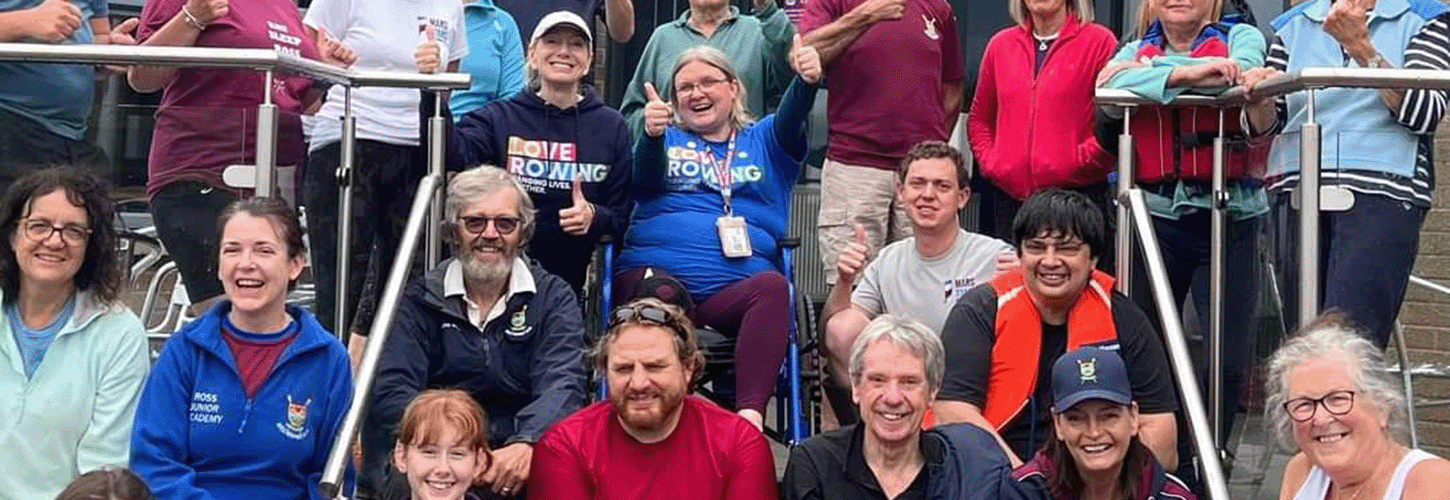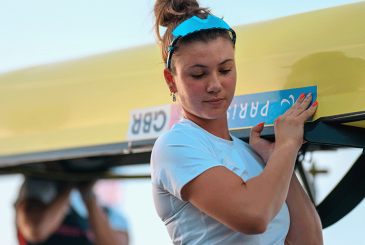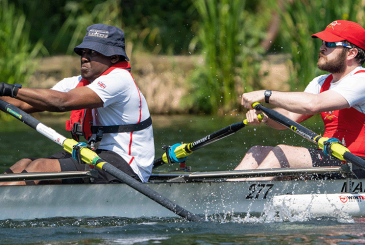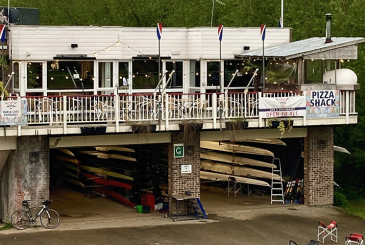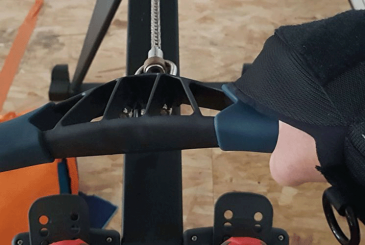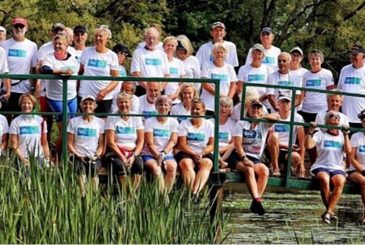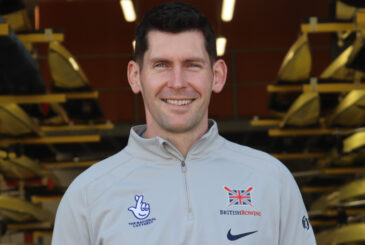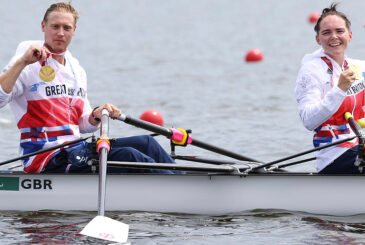A new rowing initiative, which brings together disabled and non-disabled rowers, is reaping rewards for the local community in Ross-on-Wye. Lebby Eyres finds out more about Ross RC’s ‘MARS Stars’.
Everyone who is part of a rowing club has something in common; we all love getting on the water, whatever our level of ability. Some may want to win races, but for others, simply getting out in a boat is a victory in itself.
A truly inclusive club makes room for everyone in the local community. ‘Mixed ability’ squads integrate athletes with physical impairments or mental differences or conditions who may need assistance to get on the water, with non-disabled rowers who like to offer support or simply enjoy the more relaxed atmosphere such group offers.
Ross RC in Herefordshire is one of the clubs leading the way with their Mixed Ability Rowing Squad, known as the MARS Stars. Inspired by watching an international mixed ability regatta, Ross RC member Sally Pettipher set about trying to establish a similar scheme at her club. This was supported by funding from British Rowing’s charitable foundation Love Rowing and other sources.
Over 40 people from the local area have now come to MARS Stars with many regularly taking to the water, and Sally was recognised as British Rowing Volunteer of the Year for the West Midlands for her work in setting up the squad.
Here, MARS co-ordinator Marsaili Heatley explains how the group works, who it caters for and why all involved get so much out of it.
How mixed ability rowing works
Mixed ability rowing is not the same as adaptive rowing, which focuses on adapting the boat for the individual’s specific physical or sensory impairments. Instead, it caters for a wider range of needs. Participants may have poor mental health, OCD or other anxiety disorders. Or they may have physical conditions such as diabetes, chronic pain or immune disorders. People recovering from serious illnesses such as cancer are also welcome.
Heatley is a wheelchair user with a chronic pain condition worsened by a car accident in April. She says, “I have both visible and invisible disabilities. I suffer from PTSD and have also recently been diagnosed as autistic. Until I came along, there were not many adaptations needed in the Ross RC group, which shows how easy it can be to start up a mixed ability group.”
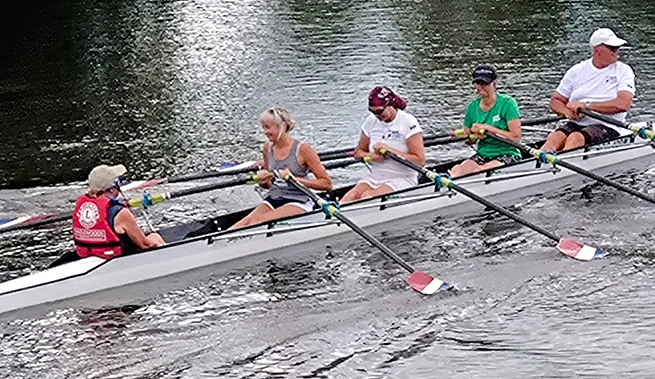
She explains, “We meet twice a week on a Tuesday afternoon and Sunday from 10am to 12pm. Sunday is generally more popular as people understandably like to be around when the rest of the club is there.” Participants can opt to pay as they go per session, removing a barrier to entry.
Depending on the season, the group will typically be out in stable singles, doubles and a coxed quad. They’ll row indoors if the conditions are bad. “It takes about 45 minutes to get everyone on the water, and the same to get them off, and we’re on the water for around 45 minutes. There is always a number of facilitating rowers, who volunteer to help carry the boats and assist with getting people in and out,” Heatley says.
For Heatley, that’s part of the joy about mixed ability rowing. She says, “You are bringing two sets of people together, who are collaborating and learning from each other, so that everyone feels like they’re giving something.”
The benefits of participating in MARS Stars
For members who need additional assistance
If you’d said to Heatley a year ago that she would be helping to run such a busy group of rowers, she probably would not have believed you. The car accident she experienced in April worsened her pain condition and Marsaili was feeling like a burden to her husband Leo.
That’s when Sally came into her life: “I was on the bank watching Leo doing Learn to Row when Sally came over and asked what I could do. That was great to hear as usually people ask what you can’t do. ‘What if you want to have a go at rowing, too?’ she said. To be honest, I thought she was mad. I didn’t see how I could possibly do that. And she replied, ‘Deep down, all you need to do is believe. We believe you can.’
“And she was right. Getting in a boat for the first time and actually moving it was a challenge. But it was also an achievement and more than that, it was the sense of feeling completely free. What I love is that the MARS Stars is a supportive safe space which puts value on you. I hadn’t realised how depressed I was and how low my self-confidence was before I started.”
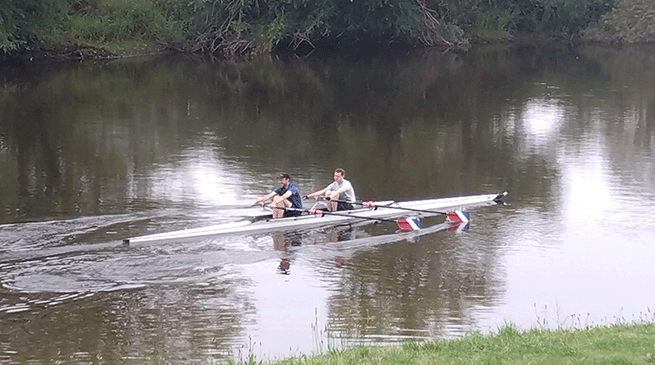
For members who support others
Rowers from other squads have also found joining the MARS Stars very rewarding. Richard Ceci explained, “I’d rowed for many years at Ross, but stopped because of various work and family issues. When someone invited me to be part of the MARS scheme I was dubious about what I could offer. I had no coaching experience and was unfit and had been diagnosed as autistic.
“But I decided to give it a try. I’ve thoroughly enjoyed it, got back onto the water, reconnected with old friends and made new friends. I’ve enjoyed trying to adapt my autistic skills to explain technique to new rowers in a way that makes sense to them.”
Coaching the squad
What really brings the MARS group together is having a coach. Jackie Baynham works with them on and off the water, giving advice, support and encouragement. Currently, Jackie is working with the MARS rowers on indoor rowing machines, and encouraging them to work towards completing a 2k. Jackie reflected, “Everyone brings something unique to our sessions, on the water or indoors. It’s not about perfection but more about progress, and moving forward together, even if it’s at their own pace. Our strength is in our teamwork, resilience and a willingness to help each other. I’ve had several members who have expressed that being a part of this group has changed their lives. That in itself is extremely rewarding.”


